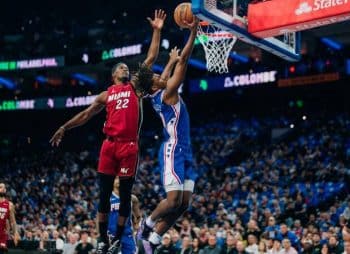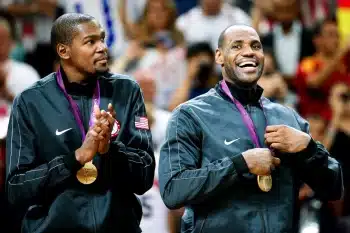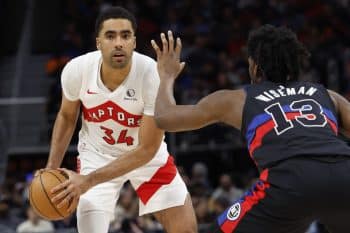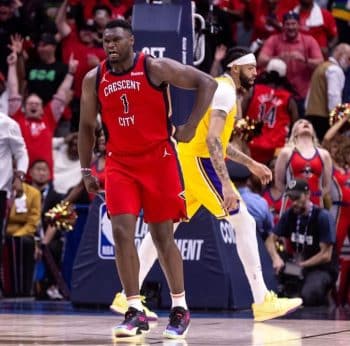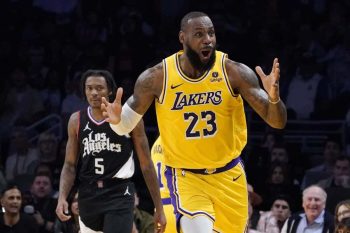NBA
Current NBA Trade Exceptions

With the arrival of 2016, teams are almost 40 percent through their respective schedules.
The top teams are the Golden State Warriors (30-2), San Antonio Spurs (28-6), Cleveland Cavaliers (21-9) and Oklahoma City Thunder (23-10).
Half the league is sitting on 12 to 18 losses, all in contention for a playoff berth. The Western Conference has just six teams over .500, while the East is 10 deep.
On Wednesday, teams can start signing players to 10-day contracts. Players on non-guaranteed contracts need to be waived before the end of the NBA business day on Friday so they can clear waivers by Sunday, otherwise their deals lock in for the remainder of the season.
Teams have until February 18 to make trades. The deadline is at 3:00 p.m. ET.
Outside of the Los Angeles Clippers (21-13), Spurs and Thunder, do any of the remaining teams in the West look to make a “win-now” deal when the Warriors are the prohibitive favorite?
Squads in the East may be more eager to improve, given the surprising depth in what has been the lesser conference for the last few years. The Cavaliers are the favorite, but they haven’t dominated the league like the Warriors so far this season.
Trades in the NBA can be complex. One helpful tool is a “traded-player exception,” commonly known as a “trade exception.”
Teams can acquire a player without sending out matching salary if that player’s salary fits within that trade exception, plus $100,000.
A team with a $4.9 million trade exception would be able to take in a player earning $5 million, like Chase Budinger of the Indiana Pacers — a random example, not meant to single out Budinger.
A franchise under the cap won’t have any trade exceptions. Instead, they can use that space to absorb a player — $5 million in cap room would be enough to acquire J.R. Smith (another random example).
Because of luxury tax concerns, a team like the Cavaliers may be hesitant to use a trade exception to add on additional salary.
The following is a list of active NBA trade exceptions held by each team:
Brooklyn Nets: $2,170,465 (Steve Blake, expiring 7/13/16), $1,357,080 (Mason Plumlee, 6/27/16), $262,131 (Kevin Garnett, 2/19/16)
Charlotte Hornets: $646,250 (Matt Barnes, 6/25/16), $548,000 (Luke Ridnour, 6/25/16)
Cleveland Cavaliers: $10,522,500 (Brendan Haywood, 7/30/16), $2,854,940 (Mike Miller, 7/30/16)
Golden State Warriors: $5,387,825 (David Lee, 7/27/16), $3,197,170 (Gerald Wallace, 7/31/16)
Houston Rockets: $1,619,096 (Alexey Shved, 2/19/16), $816,482 (Isaiah Canaan, 2/19/16)
Los Angeles Clippers: $915,243 (Jared Cunningham, 1/7/16)
Memphis Grizzlies: $396,068 (Luke Ridnour, 1/12/16), $122,441 (Jon Leuer, 6/25/16)
Miami HEAT: $2,129,535 (Mario Chalmers, 11/10/16), $1,706,250 (Zoran Dragic, 7/27/16), $1,294,440 (Shabazz Napier, 7/27/16)
Milwaukee Bucks: $5,200,00 (Zaza Pachulia, 7/9/16), $4,250,000 (Jared Dudley, 7/9/16)
Minnesota Timberwolves: $5,000,000 (Chase Budinger, 7/12/16), $816,482 (Troy Daniels, 2/10/16), $500,000 (Mo Williams, 2/10/16)
New Orleans Pelicans: $947,276 (Ish Smith, 12/24/16), $507,336 (Russ Smith, 1/12/16)
Oklahoma City Thunder: $2,750,000 (Luke Ridnour, 6/30/16), $2,204,369 (Reggie Jackson, 2/19/16), $2,038,206 (Perry Jones, 7/14/16), $915,243 (Lance Thomas, 1/5/16), $861,405 (Ish Smith, 2/19/16)
Orlando Magic: $1,599,619 (Mo Harkless, 7/14/15)
Washington Wizards: $250,000 (Andre Miller, 2/19/16)
Lastly, it should be noted that trade exceptions cannot be combined with each other. The Rockets cannot use the Shved and Canaan exceptions to bring in a player making $2.4 million.
